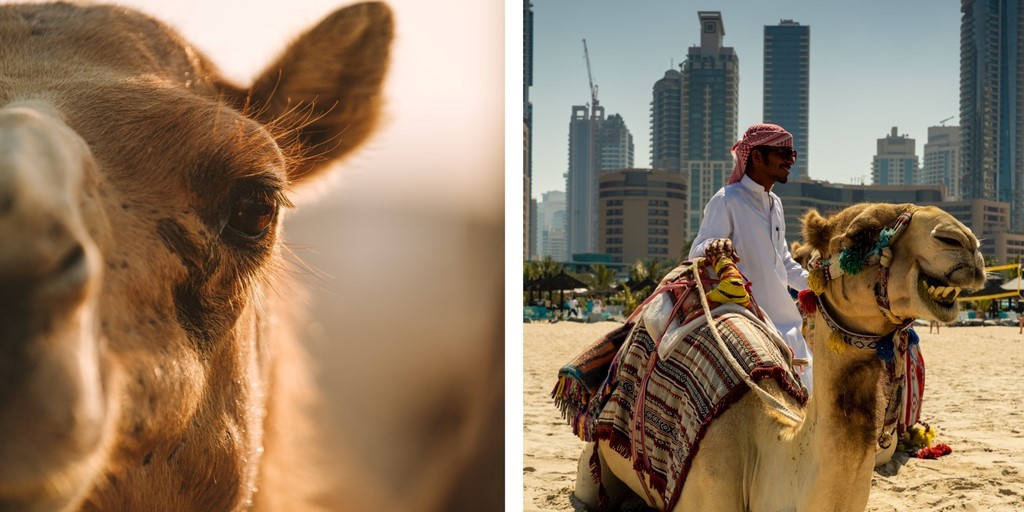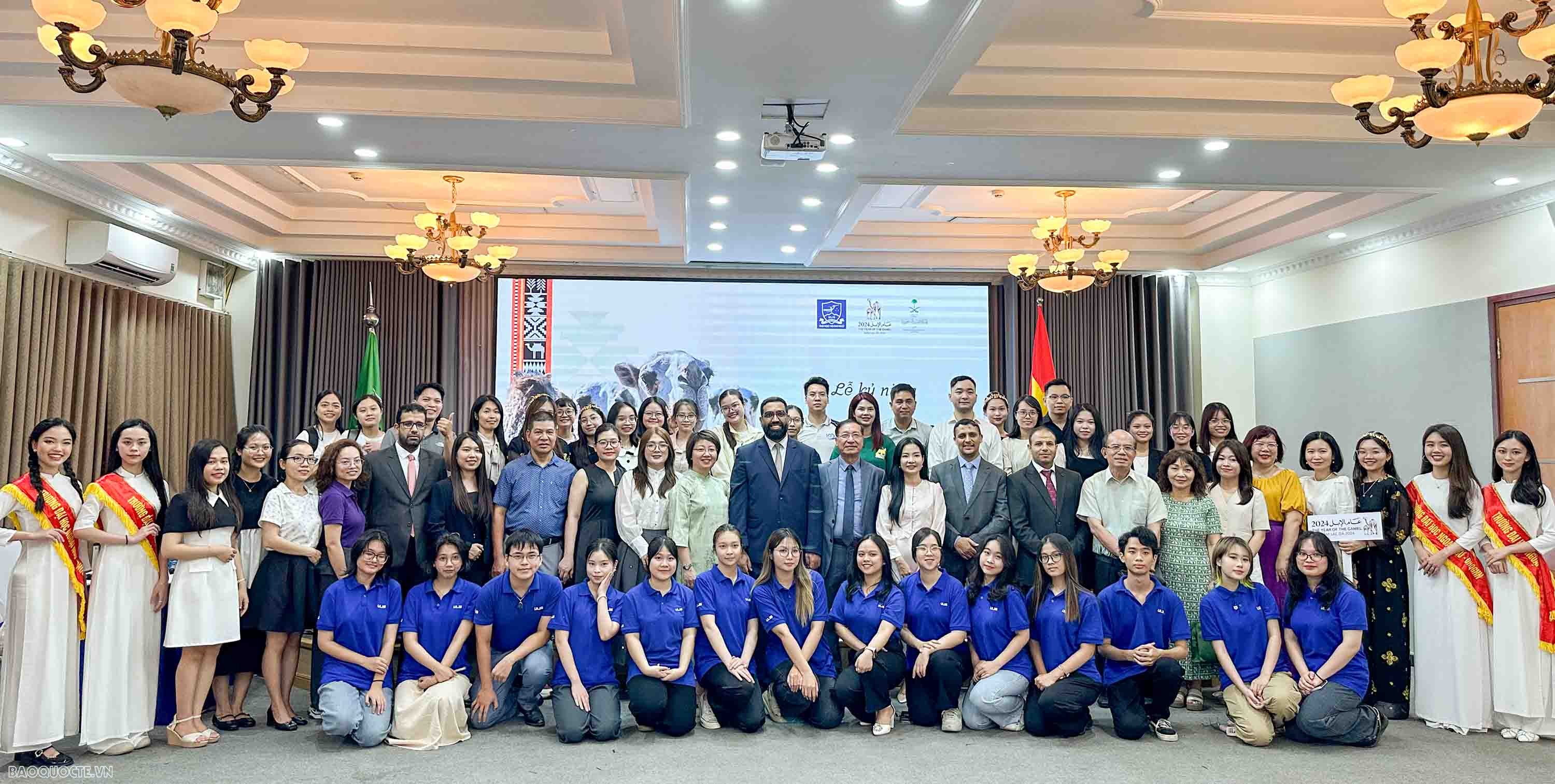
World Camel Day observed in Vietnam for first time: Celebration of the Year of Camelids in Hanoi
Latest
 |
| World Camel Day observed in Vietnam for first time. (Photo: camelculture.org) |
On June 14, an event to observe World Camel Day (June 22) and celebrate the International Year of Camelids (IYC 2024) was jointly organised in Hanoi by the Embassy of Saudi Arabia and the University of Languages and International Studies under Vietnam National University, Hanoi.
 |
| Participants at the celebration of the International Year of Camelids (IYC 2024) which jointly organised in Hanoi by the Embassy of Saudi Arabia and the University of Languages and International Studies under Vietnam National University, Hanoi. (Photo: Nguyen Hong) |
The event, the first of its kind in Vietnam, aimed to honour the historical, cultural and economic values of camels as well as helping Vietnamese people to have a better understanding about the role, value and significance of camels in the life of Arabs, as well as efforts of Saudi Arabia in preserving and promoting camel heritage.
Hamoud Naif S. Almutairi, Charge d'Affaires of the Embassy of the Kingdom of Saudi Arabia in Vietnam highlighted the profound imprint of camels in Arabic culture. He said that throughout the long history since the formation of Arab culture until now, camels have been a beloved animal, leaving a deep imprint on the lives of the inhabitants of the Arabian Peninsula. Camels are likened to "ships of the desert," and thanks to the animal, ancient Arabs were able to settle down and move in the desert. Camels are mentioned in the Holy Qur’an and hold an extremely important place in the minds of the Arab people.
 |
| Hamoud Naif S. Almutairi, Charge d'Affaires of the Embassy of the Kingdom of Saudi Arabia in Vietnam highlighted the profound imprint of camels in Arabic culture. (Photo: Nguyen Hong) |
From this perspective, Mr. Hamoud Almutairi expressed pride and highly appreciated the significant symbolic values of camels in Arab culture. "We are well aware that Arab culture must express, preserve, and reflect the strong relationship that has existed since ancient times between the Arab people and camels," said the Charge d'Affaires of the Saudi Arabian Embassy.
Currently, the Government of Saudi Arabia places great emphasis on the care and preservation of camels. As part of these efforts, the Saudi Arabian Council of Ministers has designated 2024 as "the Year of Camelids" with the aim of honouring the unique cultural values of camels in the lives of the Arab people. This initiative also seeks to strengthen the camel's solid position and increase its presence both regionally and internationally.
Mr. Hamoud Almutairi mentioned that Saudi Arabia is actively working to promote and develop the camel breeding industry, highlighting its importance in economic development and food security. At the same time, these efforts strive to preserve national identity, enhance generational understanding of cultural heritage, and showcase these cultural values, he said.
 |
| Vice Rector of the University of Languages and International Studies Le Ha Kim Anh speaks at the event. (Photo: Nguyen Hong) |
Vice Rector of the University of Languages and International Studies Le Ha Kim Anh said this event is an opportunity for lecturers, students and lovers of Arabic culture to learn more about the camel symbol of the Arab world and the role of the animal in the life of Arab people.
The Vice Rector stressed that as the first institution in Vietnam to offer Arabic language education, the University continuously encourages students to engage in both language learning and cultural studies. She emphasized that Arab culture is one of the great civilizations of humanity.
 |
| Mr. Hamoud Almutairi said that the Saudi Arabian Government consistently cares for and preserves camels. (Photo: Nguyen Hong) |
In her remark, Vice Rector noted that with their diverse types, camels have played a crucial role in the development of human society, especially in arid and semi-arid regions, since they were domesticated around 3,000-4,000 years ago. They are not only used as a means of transportation but also as a vital source of food and materials. Their ability to endure harsh conditions makes them a reliable and sustainable livelihood source.
 |
| This event is a valuable opportunity to gain a deeper understanding of the "camel" symbol of the Arab world. (Photo: Nguyen Hong) |
Moreover, camels offer many other benefits, with camel products being among the main export items ensuring food security. People on the Arabian Peninsula use camel milk, wool, skin, and meat, creating a mutual relationship between humans and camels in the vast desert. People care for camels, and in return, camels help people live and travel in the harsh natural environment.
 |
| Visitors participated in camel statue painting activities and enjoyed Saudi Arabian cuisine. (Photo: Nguyen Hong) |
Visitors at the event experienced an Arabic cultural space through traditional products such as date, coffee and camel art corners, among others.













